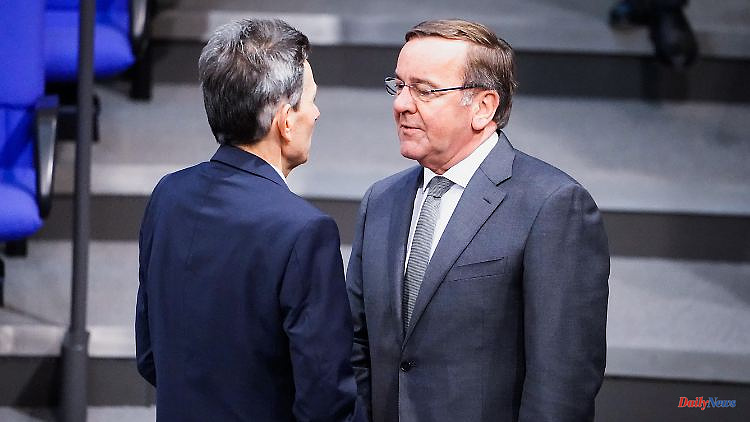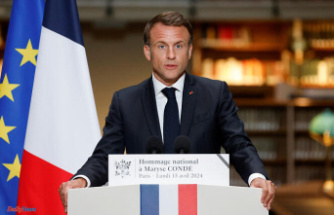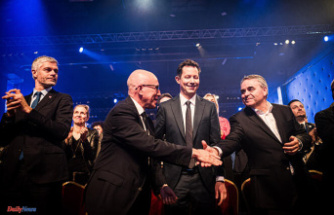Increasing debt means a higher interest burden - especially in times of inflation and tight monetary policy. Finance Minister Lindner urgently warns of this in the budget debate. Meanwhile, within the SPD, a dispute is brewing between the defense minister and the group leader.
In the budget dispute, Federal Finance Minister Christian Lindner warned of the federal government's sharply increasing interest burden. Against this background, he considers debates about suspending the debt brake in the coming year to be "economically misguided," Lindner told the "Bild" newspaper. At the same time, leading SPD members of the governing coalition, such as SPD faction leader Rolf Mützenich and Federal Defense Minister Boris Pistorius, insisted on spending on social projects and defense despite the debt brake.
"With persistently high inflation and rising interest rates, every borrowing leads to significant interest expenditure. Interest expenditure in the federal budget has already increased tenfold in the last two years, from around 4 billion euros in 2021 to around 40 billion euros in 2023. This is money that missing elsewhere," warned Lindner.
In the traffic light coalition, a dispute has broken out between parts of the SPD, the Greens and the FDP over the 2024 budget. Lindner wants to comply with the debt brake agreed in the Basic Law in the coming year and advocates prioritizing spending. The Greens and the SPD are calling for the introduction of basic child security, as agreed in the coalition agreement, to be introduced in this legislative period.
Federal Minister of Labor Hubertus Heil said on Sunday evening in ARD's "Report from Berlin" that it is not always about new money, but also about the fact that existing services for needy children finally arrive. "But there are still questions to be clarified. Anyone who is familiar with the topic knows that it is not a snap of the fingers," said Heil.
SPD parliamentary group leader Mützenich also called for compliance with agreed social projects and emphasized on Monday in the ARD morning show that the budget at the end of the year had to be approved in the Bundestag. "We have laid down important reform projects in the coalition agreement. We want to advance socio-political issues in particular. And at the end of the year we will decide what the budget should look like," said Mützenich in the ARD morning magazine.
At the same time, Mützenich reacted cautiously to Defense Minister Pistorius' call for more money for the Bundeswehr. With the special fund of 100 billion euros, Pistorius will "adequately" handle the upcoming projects over the next three years, said Mützenich. "But he also has to take care of the department's spending policy, there are major shortcomings there," as noted not only by experts, but also by the Federal Audit Office.
On Sunday evening, Pistorius also warned on ARD against playing off military necessities and important social projects against each other: "A way has to be found and in political business that usually always involves reasonable compromises," said Pistorius. The budget of the Ministry of Defense must grow "significantly" because otherwise Germany would not be able to carry out the tasks that it had not been able to carry out for 30 years.
Mützenich said that in principle he could understand it if Pistorius went on the offensive. "He is the department minister, he now has to negotiate with the finance minister," said the group leader. However, he advocated that Pistorius also use his political weight to win more money for other projects, such as in domestic and social policy.
Criticism came from the Greens from Federal Family Minister Lisa Paus. She again rejected Lindner's reservations about the planned basic child security. "It's about finally effectively combating the structurally entrenched child poverty in Germany," Paus told the "Spiegel". "Basic child security is the most important socio-political project of this federal government," she emphasized.
"Such a priority project must of course also have priority in the budget," Paus continued. "In any case, priority over spending requests that are not in the coalition agreement." The minister referred to tax breaks for top earners such as the complete abolition of the solidarity surcharge demanded by Lindner, which alone costs around eleven billion euros.












